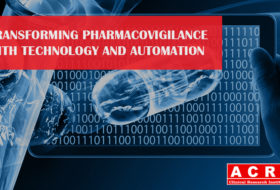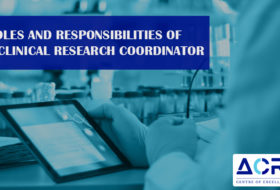We all have been prescribed one or the other medication by a doctor. It could be an oral medicine, a syrup, an injection, or a vaccine. Whatever it is, all we do is get to the pharmacist, give him the prescription, buy the medicine, and gulp it down as prescribed. While we are undergoing the pain, all we think about is getting well soon; and once we are back to normal, we easily forget about the medicine that brought us back to our routine. For us, the pain that we go through while we are on medications is what is important; but, what about the pains that the researchers go through while developing that medicine for us? Have you ever wondered how that medicine was though about, developed, and reached the pharmacist’s shelf?
Well, now that you think about it, the journey of a medicine isn’t easy. It is always kept in doubt until it is approved to be safe, and sanctioned to be packaged and sold. Every medicine passes through a number of procedures called clinical trials to ensure their safety and efficacy. The reason that modern medical advances have helped millions of people live longer and healthier lives is the decades of investment in medical research.
What are clinical trials?
Clinical trials are experiments or observations done on human participants, designed for treating specific conditions or disorders. They generate data on safety and efficacy that are later analyzed by FDA to check whether they are safe and efficacious enough to be approved for market release. Once approved, the medical devices, medications, or injections are produced, packed, and sold. Clinical trial participation is completely voluntary, wherein participants are overseen at all times to ensure that there is fair conduct and no risk to their health because of the trials.
Why are clinical trials important?
Clinical trials can help detect diseases or conditions, and treat them by testing any new device, treatment, or procedure. They may also help to detect and prevent diseases by testing a vaccine. All in all, clinical trials help people control their symptoms and improve their quality of life by providing raised standards of treatment and improving health care.
How are clinical trials conducted?
This is where we come to the main part – how medicines go through their journey from mind to shelf. Once a thought comes into the mind of a researcher, a potential medicine, procedure, or treatment is discovered. These interventions are then tested in animals for pre-clinical studies, which are submitted to the FDA for permission to test in humans, if the test is successful in the case of animals. Once the permission is granted, the medicine undergoes four phases.
Phase 1 – The drug is first tested on a small group of 20-80 participants to evaluate its safety. Also, any side effect is looked for, and an approximate safe dosage is determined at this stage.
Phase 2 – The drug is tested in a larger group of hundreds to determine efficacy and further safety among a larger group of people of all kinds of castes, regions, skin, etc.
Phase 3 – The drug is now tested on thousands of participants for final confirmation of safety and efficacy, comparing it to other commonly used treatments.
Phase 4 – Once all these phases are complete, and the drug is found safe through all of them, the New Drug Application is submitted to the FDA to gain approval for marketing. The FDA undergoes rigorous evaluation and reviews all the information regarding the drug before approving it for marketing.
You can see how clinical trials play an important role in improving the health outcomes in India. And, it is also a lucrative career option for all those interested in medical research. If medical research interests you too, get enrolled with Avigna Clinical Research Institute’s online clinical research training course, and benefit from having a great career in top CROs, Bio-techs, and pharmaceutical companies.










